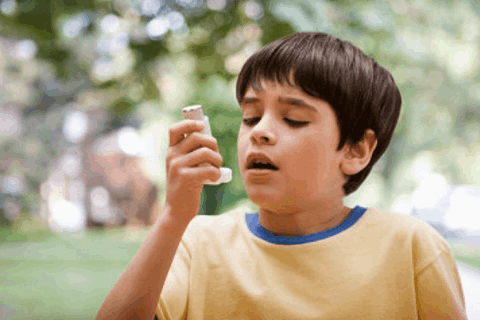ALLERGY SYMPTOMS
Wheezing

Wheezing happens when the airways are tightened, blocked, or inflamed, making a person's breathing sound like whistling or squeaking. Common causes include a cold, asthma, allergies, or more serious conditions, such as chronic obstructive pulmonary disease (COPD). Wheezing is a high-pitched, coarse whistling sound when you breathe. Many people with respiratory allergies know that wheezing often comes with hay fever season.
Wheezing is the shrill whistle or coarse rattle you hear when your airway is partially blocked. It might be blocked because of an allergic reaction, a cold, bronchitis or allergies. Wheezing is also a symptom of asthma, pneumonia, heart failure and more. It could go away on its own, or it could be a sign of a serious condition.
Causes:
Inflammation and narrowing of the airway in any location, from your throat out into your lungs, can result in wheezing.
The most common causes of recurrent wheezing are asthma and chronic obstructive pulmonary disease (COPD), which both cause narrowing and spasms (bronchospasms) in the small airways of your lungs.
However, any inflammation in your throat or larger airways can cause wheezing. Common causes include infection, an allergic reaction or a physical obstruction, such as a tumor or a foreign object that's been inhaled.
All of the following conditions can lead to wheezing:
Allergies
Anaphylaxis (a severe allergic reaction, such as to an insect bite or medication)
Asthma
Bronchiectasis (a chronic lung condition in which abnormal widening of bronchial tubes inhibits mucus clearing)
Bronchiolitis (especially in young children)
Bronchitis
Childhood asthma
COPD
Emphysema
Epiglottitis (swelling of the "lid" of your windpipe)
Foreign object inhaled: First aid
Gastroesophageal reflux disease (GERD)
Heart failure
Lung cancer
Medications (particularly aspirin)
Obstructive sleep apnea (a condition in which breathing stops and starts during sleep)
Pneumonia
Respiratory syncytial virus (RSV) — especially in young children
Respiratory tract infection (especially in children younger than 2)
Smoking
Vocal cord dysfunction (a condition that affects vocal cord movement)
Continued wheezing demand an IGE test to eliminate the an allergy cause.
If IGE levels are high, must go for a complete allergy test.